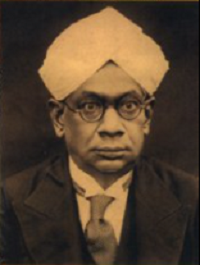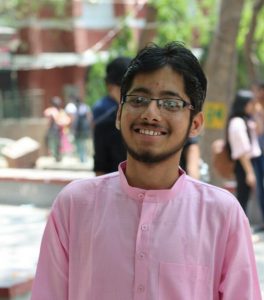A prodigy, nationalist, journalist, politician, thinker – C.Y. Chintamani was a liberal in every sense of the word. As the editor of a leading national daily, Chintamani placed utmost importance on free speech. He did not shy away from criticizing the British Raj, INC, and even fellow liberals.
In the first half of the 20th century, C Y Chintamani was among the few liberal Indian politicians balancing between opposing the British Raj and the Gandhian method of civil disobedience. The liberal commitment to constitutional means in the age of Gandhian mass movement nudged one away from public sentiment. However, this should not lead us to underestimate the notable, patriotic contributions of liberals. Neither should the liberal strand of Indian anti-colonial movement be allowed to lie in oblivion. In this context, the contribution of Chintamani as a politician and editor warrants commemoration.
Born on 10 April 1880, in the town of Vizianagaram in Madras presidency, Chintamani spent much of his public life in the North Indian town of Allahabad. Back then, Allahabad was a vibrant intellectual and cultural center for Indian nationalists in North India. These included the Nehrus, Madan Mohan Malaviya, and moderates. Interestingly, Chintamani was able to sustain his intellectual and political activism in the Hindi heartland town without having learned to read and write in Hindi. Right from his young days, Chintamani was drawn to the moderate leaders of the Indian National Congress, who were influenced by liberal ideas. They focused on social reforms and political rights for Indians.
Chintamani had a prodigious mind. He began editing the Vizag Spectator at the age of 18. After his joining, the newspaper was renamed as Indian Herald. His biographer mentions that owing to financial difficulties which were all too common for native press ventures back then, Chintamani was not only an editor, but also the foreman, proof-reader, reporter, sub-editor, and manager all rolled into one. After 1899, he moved to Madras to join the Madras Standard with G Subramania Iyer.
However, the pinnacle of Chintamani’s journalistic career was to come with his association with The Leader. Published from Allahabad, The Leader emerged as a leading English nationalist newspaper in the United Province. Earlier, print media was mainly dominated by Anglo-Indian papers like the Pioneer, The Statesman, and Times of India. These did not see much representation of Indian issues. The only notable exceptions were Pandit Ajodhia Nath’s India Herald and Babu Ganga Prasad Varma’s weekly Advocate. The India Herald was a short-lived experiment, while the Advocate didn’t carry much weight. The Leader began as an English daily from Allahabad and incorporated the weekly The Indian People. This nationalist print media initiative was a joint venture of leading figures including Pandit Madan Mohan Malaviya, Motilal Nehru, Sachchidnanda Sinha, and Tej Bahadur Sapru. Chintamani was first brought in as a joint editor with Nagendranath Gupta. He soon became the sole editor.
In his role as the editor, Chintamani put a premium on editorial independence. He conceded to newspaper proprietors the right to frame the paper’s agenda and hire/fire people at will. However, he reserved to himself the right to decide the content and everyday management of the paper. The key to editorial independence in Chintamani’s case, argues his biographer, was his readiness to quit the job. Chintamani’s editorial integrity cost him friendship with Motilal Nehru and put him in the opposing camp to Malaviya, both of whom happened to be on the board of The Leader. The bone of contention with Motilal was rooted in his decision to invite Nautch dancers to perform at the Allahabad Congress session in 1910. The move drew sharp criticism from Chintamani who had no patience for this act of cultural rejuvenation amidst serious discussion of political matters. The final straw though came with Chintamani’s refusal to publish Motilal Nehru’s letter to the editor during the 1915-16 debate on the separate electorate for Muslims in United Province municipalities. An incensed Motilal resigned from The Leader.
The conflict with Malaviya occurred over the issue of Montagu-Chelmsford reforms. Predictably supported by Chintamani and opposed by Malaviya. In this case, however, it was Malaviya who resigned from the board of The Leader in the best interest of the newspaper which was served in the able hands of its editor. Chintamani served in this capacity until his death in 1941, except for a brief stint with the Indian Daily Mail in 1925. The Leader was seen as a liberal party newspaper but it was not merely a mouthpiece organ. The newspaper criticized the British Raj, but also Congress leaders and even liberal colleagues. For instance, Gopal Krishna Gokhale, the patron saint of the Indian liberal pantheon, was not spared for his support to the Press Act of 1910. Chintamani’s response to Gokahle’s protest at the criticism went: ‘Sir, I have worshipped you all my life. Must you grudge my freedom even for one day?’
Chintamani’s political career began with the Congress in 1898. He left Congress in 1918 to form the Liberal Party with Surendranath Banerjea, Dinshaw Wacha, Chimanlal Setalvad, and Tej Bahadur Sapru. As a liberal, his preferred solution for India was the use of constitutional means to secure a dominion status for India within the empire. Like other liberals, he disagreed with the Gandhian mode of civil disobedience. He saw it as a sure path to disaster for it undermined the respect for law and authority among the masses. Apart from being a participant in the first Roundtable Conference, his other political roles involved membership in the Legislative Council and being a Leader of the Opposition.
Chintamani’s fiercely independent personality was reflected in his unwavering commitment to principles which saw him criticizing fellow liberal travelers as well. Even after he was awarded the Knighthood, his criticism of the British Raj did not cease. Edwin Montagu recognized the genius of the Indian liberal nationalist editor-politician – “An extraordinarily intelligent man, I think the cleverest Indian in debate I have yet seen.”


